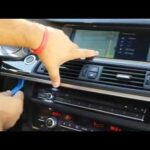Dealing with a hole in your car muffler pipe can be annoying and noisy. Before you rush to an expensive mechanic, you might be wondering about a quick DIY solution. Specifically, can you use JB Weld to repair that hole? This article dives into using JB Weld for muffler pipe repair, offering insights and advice for a temporary fix.
Understanding Exhaust System Holes
Exhaust systems endure harsh conditions – extreme heat, road debris, and constant exposure to the elements. Over time, rust and corrosion can weaken the metal, leading to holes and leaks, often starting at weld points or along the pipe itself. These holes, even small ones, can cause your car to sound louder and may even affect fuel efficiency. Locating these holes on the muffler pipe, especially near heat shields, can sometimes make traditional repairs like welding tricky without removing parts.
JB Weld for Exhaust Repair: Does It Actually Work?
The question on many DIYers’ minds is: will JB Weld hold up on a hot exhaust pipe? JB Weld is a well-known epoxy adhesive renowned for its strength and heat resistance. Manufacturers often state its heat resistance up to around 500-600°F (260-315°C), which seems promising for exhaust applications.
Many car owners have turned to JB Weld for minor exhaust leaks and holes, especially as a temporary measure. Online forums and communities are filled with anecdotal evidence. One user shared their experience of using JB Weld and a tomato paste can patch, secured with a hose clamp, which lasted for years. Another used JB Weld on a motorcycle muffler, which generally runs hotter than a car muffler, with reasonable success for a temporary period.
These real-world experiences suggest that JB Weld can indeed work for repairing small holes in car muffler pipes, particularly for a quick and dirty fix to extend the life of your exhaust system until a more permanent repair can be made.
How to Apply JB Weld for a Muffler Hole Patch
If you decide to try JB Weld, here’s a step-by-step approach, inspired by successful DIY attempts:
- Clean the Area: Thoroughly clean the area around the hole on the muffler pipe. Remove loose rust, dirt, and debris using a wire brush or sandpaper. A clean surface is crucial for JB Weld to adhere properly.
- Prepare a Patch (Optional but Recommended): While JB Weld can be used alone, reinforcing it with a patch can significantly improve the repair’s longevity. Consider using a piece of thin sheet metal (like from a tin can) or even heavy-duty aluminum foil. Cut the patch slightly larger than the hole.
- Mix JB Weld: Follow the JB Weld product instructions to mix the epoxy resin and hardener correctly.
- Apply JB Weld: Apply a generous amount of JB Weld directly to the cleaned area around the hole. If using a patch, place the patch over the hole and press it firmly into the JB Weld. Ensure the JB Weld spreads out around the patch edges to create a good seal.
- Secure with a Clamp (Highly Recommended): For added pressure and to ensure a tight seal, use a hose clamp to secure the patch and JB Weld to the muffler pipe while it cures. This is particularly useful when dealing with exhaust pressure.
- Cure Time: Allow JB Weld to cure completely according to the manufacturer’s instructions (usually several hours or overnight). Heat can help speed up the curing process, but letting it air dry is generally sufficient.
Alternatives to JB Weld for Exhaust Repair
While JB Weld is a popular choice, other products are specifically designed for exhaust repair.
- Muffler Putty: As mentioned in the original forum, muffler putty is a heat-resistant paste that hardens when exposed to exhaust heat. It’s designed specifically for exhaust leaks and can be a good alternative to JB Weld.
- Exhaust Wrap: Exhaust wrap, often made from fiberglass or similar heat-resistant materials, can be wrapped around the damaged pipe section to seal leaks. It’s often used in conjunction with clamps.
Limitations of JB Weld and When to Seek Professional Help
It’s crucial to remember that JB Weld is a temporary fix for exhaust holes. While it can effectively seal small holes and leaks, it’s not a permanent solution, especially for larger holes or structurally weakened exhaust systems.
For extensive damage, significant rust, or holes in critical exhaust components like the catalytic converter or manifold, professional welding or component replacement is necessary. JB Weld is best suited for minor, localized damage on muffler pipes, particularly in areas that aren’t under extreme stress or heat right off the engine.
Conclusion: JB Weld as a Temporary Exhaust Fix
For a quick, affordable, and DIY-friendly solution to a small hole in your car muffler pipe, JB Weld can be a viable option. User experiences and the product’s heat-resistant properties suggest it can provide a temporary seal, especially when used with a patch and clamp. However, for long-term reliability and for significant exhaust system damage, professional repair is always recommended. Using JB Weld can buy you time and quiet down your ride, but plan for a more permanent fix down the road.

